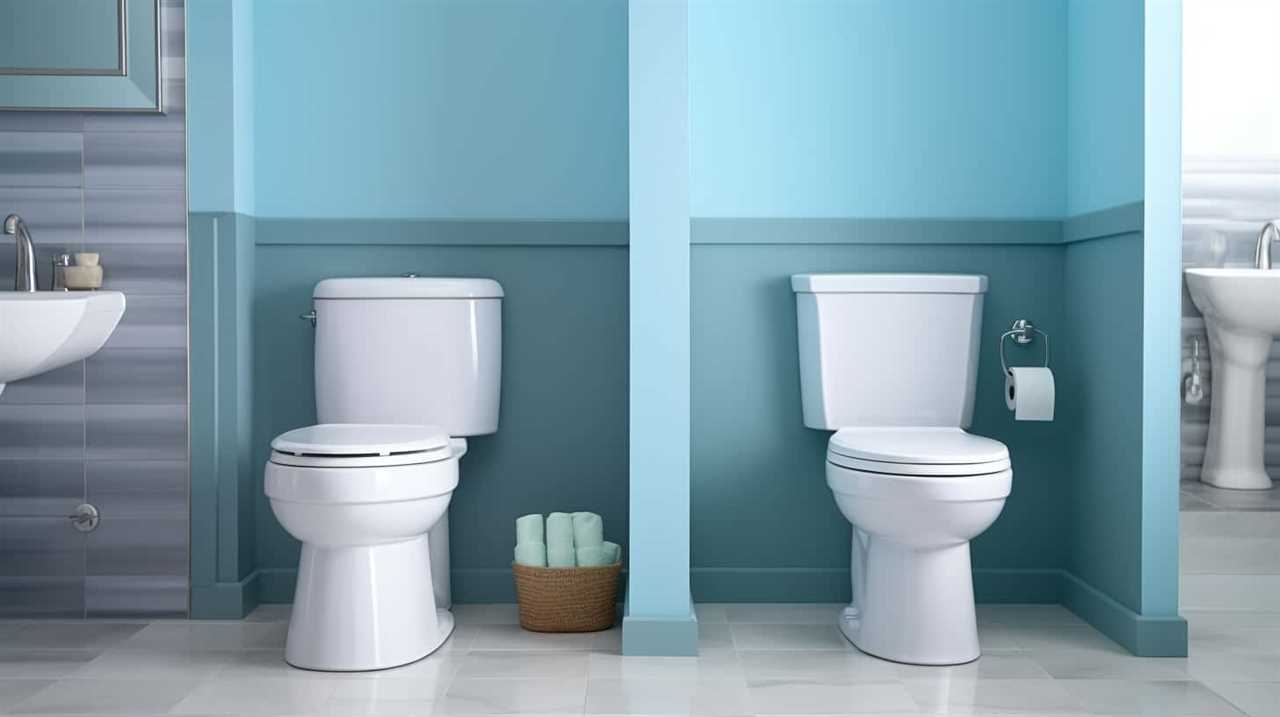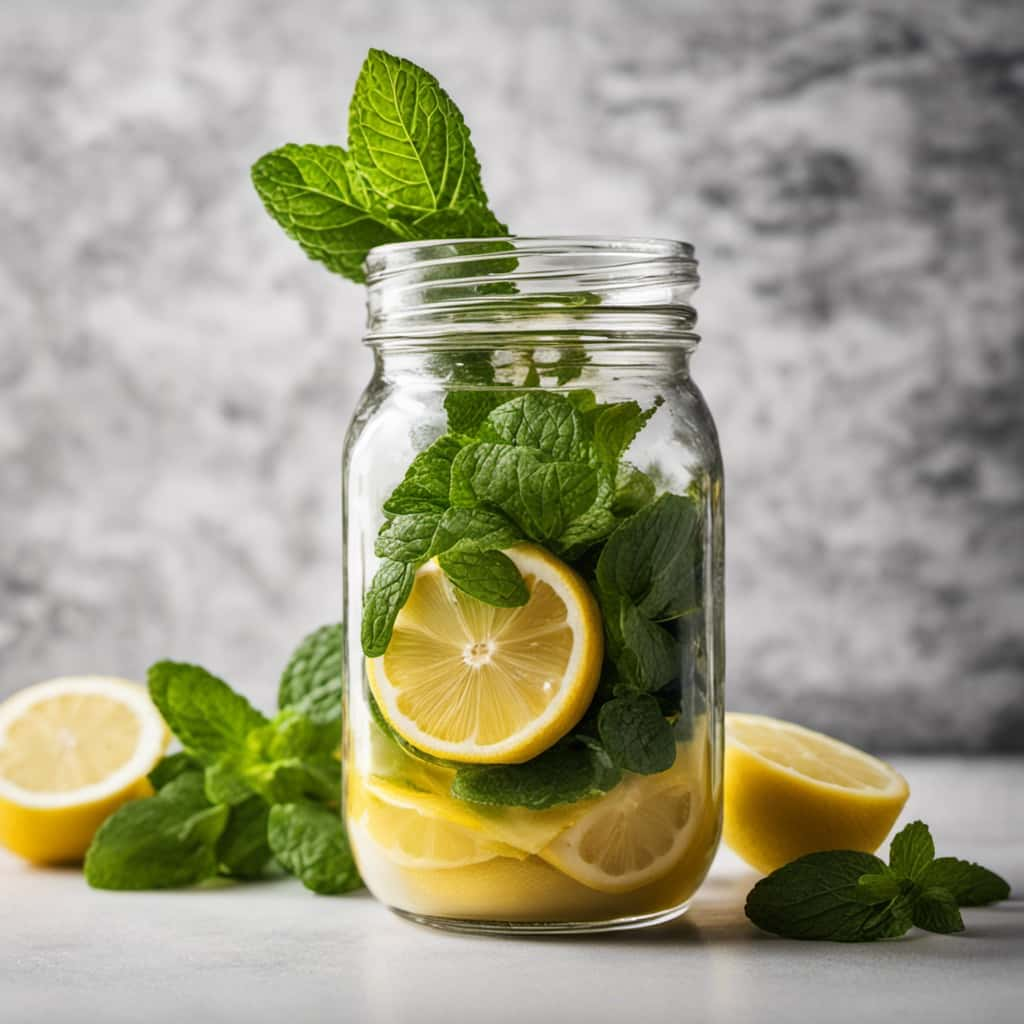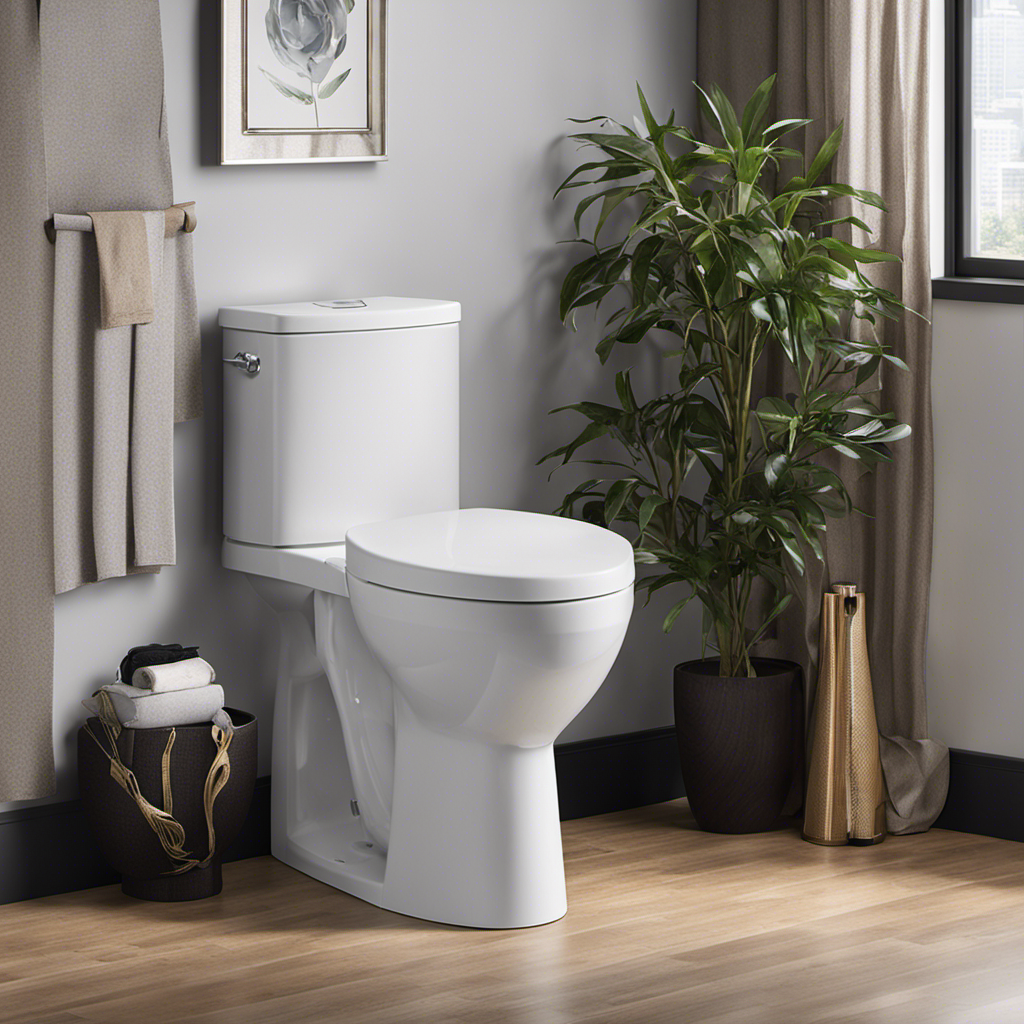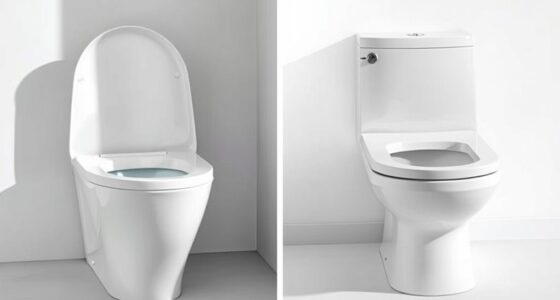Imagine a world where our pipes flowed seamlessly, like a symphony of water. But alas, this harmony is disrupted when we thoughtlessly throw oils down our drains.
The repercussions are far-reaching, from environmental devastation to costly repairs.
In this article, we delve into the scientific reasons why oils should never be tossed down pipes.
So join us on this journey of discovery as we unravel the consequences of our actions and strive for mastery over our plumbing systems.

Key Takeaways
- Oils create a slick layer on water bodies, disrupting ecosystems and hindering sunlight penetration.
- Inhalation of oil fumes and contact with oil residues can cause respiratory problems and skin disorders.
- Improper oil disposal can result in fines, penalties, and legal action.
- Throwing oils down pipes leads to clogged pipes, costly repairs, and fatberg formation.
Environmental Impact
The environmental impact of throwing oils down pipes is significant and can cause serious harm to ecosystems. When oils are improperly disposed of in this manner, water pollution becomes a major concern.
Oils create a slick layer on the surface of water bodies, preventing oxygen exchange and hindering sunlight penetration. This disrupts the delicate balance of aquatic ecosystems, leading to the decline of various species and the degradation of their habitats.
Additionally, oils contain harmful chemicals that can be toxic to aquatic organisms, causing long-term damage to their health and reproductive capabilities. The impact on aquatic ecosystems is far-reaching and can have cascading effects throughout the food chain.
Therefore, it’s imperative to take proper measures to dispose of oils responsibly and prevent further water pollution.

This leads us to the subsequent section, where we’ll explore the issue of clogs and blockages caused by throwing oils down pipes.
Clogs and Blockages
To continue our discussion from the previous subtopic, let’s now delve into the issue of clogs and blockages caused by throwing oils down pipes. This is a serious concern that can lead to various complications and costly repairs.
Here are three reasons why oils should never be disposed of in this manner:
- Clogs: Oils, especially when cooled, can solidify and cling to the inner walls of pipes, causing blockages that impede the flow of water and wastewater.
- Damage to plumbing systems: The accumulation of oil deposits can corrode and damage pipes over time, leading to leaks, bursts, and costly repairs.
- Environmental hazards: Clogs and blockages can cause wastewater backups, resulting in overflows and pollution of water sources.
Prevention methods play a crucial role in avoiding these issues. Instead of throwing oils down pipes, consider alternative disposal methods such as recycling or using absorbent materials to soak up the oil before discarding it properly.

Damage to Plumbing System
Our plumbing system can suffer significant damage when oils are thrown down pipes. The improper disposal of oils can lead to various problems that require costly plumbing repairs.
One major issue is pipe corrosion. When oils accumulate in the pipes, they can react with the metal, causing corrosion to occur. Over time, this corrosion weakens the pipes, making them more prone to leaks and breaks.
Additionally, the buildup of oil can also restrict the flow of water through the pipes, leading to decreased water pressure and potential blockages.
These issues not only require professional plumbing repairs but can also result in extensive damage to the overall plumbing system. Therefore, it’s crucial to dispose of oils properly to avoid these costly and inconvenient consequences.

Increased Maintenance Costs
Maintaining a regular cleaning schedule for our plumbing system is crucial to prevent increased maintenance costs associated with throwing oils down pipes. When oils are disposed of in our drains, they can lead to higher repair bills and decreased pipeline efficiency. Here are three reasons why throwing oils down pipes can result in increased maintenance costs:
- Clogged Pipes: Oils solidify and congeal over time, leading to clogged pipes. This blockage restricts the flow of water and other waste, causing backups and potential damage to the plumbing system.
- Corrosion: Oils can corrode the inner lining of pipes, weakening their structure and increasing the likelihood of leaks or bursts. This corrosion not only requires costly repairs but also poses a risk to the integrity of the entire plumbing network.
- Damage to Sewer System: Oils that enter the sewer system can accumulate and create fatbergs, large masses of congealed fats and oils that can block sewer lines. Clearing these blockages requires extensive and expensive maintenance, which ultimately falls on the shoulders of taxpayers.
To avoid these issues and prevent increased maintenance costs, it’s essential to dispose of oils properly by recycling or using designated collection points.
Potential Health Hazards
Throwing oils down pipes can pose potential health hazards. The improper disposal of oils can lead to long term consequences and contamination risks.
When oils are thrown down pipes, they can accumulate and cause blockages, leading to sewage backup and potential exposure to harmful substances. These substances can contaminate water sources, posing risks to both human health and the environment.

In addition, the accumulation of oils can attract pests and insects, further increasing the risk of disease transmission. Inhalation or direct contact with oil fumes and residues can irritate the respiratory system and skin, leading to respiratory problems and skin disorders.
Therefore, it’s crucial to properly dispose of oils to prevent these potential health hazards and protect both ourselves and our environment.
Conclusion
In conclusion, it’s imperative to avoid throwing oils down pipes due to their devastating environmental impact, potential health hazards, and detrimental effects on plumbing systems.
Not only do oils cause clogs and blockages, but they also lead to increased maintenance costs.

By neglecting proper disposal methods, we’re risking irreversible damage to our surroundings and facing the consequences of our actions.
Let’s acknowledge the gravity of this issue and take appropriate measures to protect our environment and plumbing systems.









